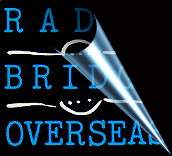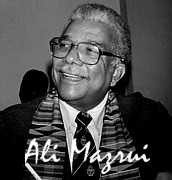"Die
Tragödie ist, dass sich die Kommunikation ausweitet,
aber der Dialog schrumpft." Der bekannte kenianische
Wissenschaftler, Ali Mazrui, bemerkte dies erstmals als
Gastgeber der BBC-Fernsehserie "Die Afrikaner".
Professor Mazrui berührte damit eine der am meisten
unterschätzten Sperren für Gleichheit zwischen Nord und
Süd, das Maß für selbstbestimmten Ausdruck. Der daraus
resultierende Mangel an Verständigung, so der ehemalige
UN-Generalsekretär Boutros Boutros Ghali, stelle die
größte Gefährdung für die Welt-Sicherheit dar.
Unglücklicherweise scheinen Fortschritte bei der
Entwicklung technischer Gerätschaft nicht einherzugehen
mit Verbesserungen bei Kommunikation oder Verständnis
zwischen den Völkern der Welt ... Es ist nötig, auf
eine andere Art technischer Revolution zu setzen, auf
eine, die nicht bloß Technologie verbessert, sondern sie
verbreitet."
 |
|
THE RBO-MANUAL FOR
STORYTELLERS
— just
in English because professional storytellers want
to be understood widely
— nur
auf Englisch, weil sich professionelle
Geschichtenerzähler in dieser Sprache
verständigen |
 INTRODUCTION INTRODUCTION
The Radio Bridge Overseas Manual is intended to be your
reference in becoming the storyteller and voice of the
South — Africa, Asia and Latin America. Imagine that
you are tasked to describe a red apple to a person born
blind, in a simple, crisp and precise language that he or
she can almost smell it. The approach of RBO is to take
the listener by the hand on a tour of your experience and
provide a scenario, give answers and pass on a message in
a critical programme with participative interaction
between producers and the audience.
The RBO storyteller holds the listeners' attention from
the beginning to the end of the programme without losing
their interest.
You are on a mission to investigate on behalf of the
listener as opposed to the "KNOW-ALL" approach
often used by Northern correspondents. Your stories have
to be well researched, verified and balanced.
It is imperative that the RBO author or producer searches
for a true image of the facts and views as they may exist
on all levels of societies of the South, with no bias
towards any powers that may be. The RBO author or
producer is the analytical mirror of Africa, Asia and
Latin America as well as the facilitator of interaction
between South-North and South-South.
 EQUIPMENT & CO-OPERATION EQUIPMENT & CO-OPERATION
To become an RBO-storyteller you should team up with
others in order to utilize common technical ressources
like a laptop with appropriate software and
Internet-access. Apart from such technical co-operation,
you may want to discuss your work with other
professionals within a group of people you trust. You
also may want to interact when it comes to master your
technical skills as your own sound-operator. Radio is all
about sound. We don’t have pictures or printed words
to help us tell the story, just the sounds of
people’s voices and their surroundings. Sound brings
listeners into our stories, takes them to a place, helps
them feel the events we describe. It’s a powerful
thing if gathered well and used correctly. Click on
"B-Side" to receive advice on how
to work with sound. Click on "AVS4YOU User Guides" to receive advice on how to
download and to handle audio editing software.
 LANGUAGE & EFFECTS LANGUAGE & EFFECTS
The RBO storyteller must be able to tell his complete
story within five minutes and turn a full circle —
addressing the questions: What? How? Why? When? Who?
Where? — but must not, as the cliche goes,
"chase five rabbits simultaneously" because you
will not catch any of them. It is best to target one
theme avoiding to overflower it with intertwining
verbiage and the obvious so that the audience can easily
follow. Showing off your mastery of language, academia
and using jaw breakers will impress no one. Use the
simple word instead of the farfetched. Your programme
should be able to capture the attention and be easily
understood by the ordinary housewife, elementary school
pupil as well as thrilling for that university professor.
You are working with the spoken word which is nutritious
for the ear.
The spoken word can be spiced up and actualised with
natural sound, and sound effects to take the listener
into the story. Once carried on the air waves, the
listener cannot refer back to what you said as in the
case with the print medium hence the importance of
identifying and doing justice to one lead in your story
and not crowding it with too many leads, rushing to
conclude your story and fill up air time. Once the
housewife stops dusting the coffee table and sits on the
settee to listen to your programme, Mr. Chitengu's
screaming wife and seven children wrestling on the floor
fall silent to listen to you while Professor Irmer puts
down his pen and wears headphones to hear your story then
you have graduated as an RBO producer.
 CONFERENCES CONFERENCES
Millions of trees are turned each year into piles of
paper at conferences, seminars and workshops in the South
and, of course, in the North. Such a gathering may be one
ready source of programme material. It is very easy to
collate conference speeches and compile what was
presented and read out the communique of resolutions. The
RBO producer does not take this easy way out. The RBO
producer finds out, from a Southern view: Why the
conference? Who is involved? What are the participants'
personal experiences? What are their opinions in relation
to the topic or about socio-political and economic issues
and in the context South / North interaction? The RBO
producer begins his research from the grassroot weaving
upwards. As opposed to shooting the duck, the RBO
producer records the quack of the duck, then confronts
the hunter, so to speak. RBO does not just scratch the
surface.
 EXAMPLE EXAMPLE
A typical RBO approach was its coverage of a Northern
sponsored conference in Zimbabwe's capital Harare where
22 African countries congregated to map out exchange of
information on appropriate technology. The RBO approached
the conference by starting off in the remote virgin
Zambezi valley in Zimbabwe, part of the rural areas where
the majority of the Africans live and where the
appropriate technology, promoted by the North, would be
applied.
 CREATIVE APPROACH CREATIVE APPROACH
At a cocktail reception for delegates in the evening the
RBO producer took a completely different approach and
interviewed women participants on the meaning of
circumcision in Africa. In other words, a whole series of
programmes can be produced from a single gathering,
depending on what sources can offer, even apart from
their agenda. Of course, excerpts from the actual
conference presentations can be used if they highlight a
unique thought. The RBO editor always says, "There
are thousands of stories out there to be told. In the
village, at the bus stop, at a party, provided you have
the knack for being a communicator, you are not a shy
inhibitive investigator who easily gives up". The
curious RBO producer has a nose for stories and therefore
feels naked without his recorder. He or she is always on
the lookout for material where ever he or she may be.
 PROGRAMME PLANNING PROGRAMME PLANNING
— Identify a topic from your environment be it
political, social, economic, ecological, cultural,
musical, or of human interest.
— We are not talking about news-items but about
themes which provide a background and may have a
"long shelf-life" to be used by interested
media organisations even years after production.
— However, we also advise to focus on up-coming
news-topics well in advance (elections, international
conferences, annual events etc.) so that Editors would be
willing to accept a background-story from within your
environment once the news hit the headlines.
— Thorough research of the background of the
identified topic from all the possible angles is vital
and most advisable.
— Ask the questions: What? How? Why? When? Who?
Where? — and strive to answer them in your
programme.
— Record as much sound as possible both natural and
from interviews.
— Don't impose your opinion on an interviewee, help
him / her to open him- / herself up to your natural
interest. Not you, he / she is the source you want to
tap.
— Listen to the recorded material and select all
inserts for possible use in your final programme. By
doing so you will develop a general idea of the shape and
trend of your script.
 PROGRAMME REALISATION PROGRAMME REALISATION
— Select — along the line of your programme
idea — the most gripping inserts. Edit each with the
help of a sound production software on your computer.
Take note of their duration with cue-words in and out. It
may help to prepare for each selected insert one card and
shuffel them around until you find a line for your story,
reflected in a final chronological order.
— Start to weave your script around these inserts.
— Find a catchy introduction which can draw the
attention of your listener and maintain it. Try to take
up this introduction at the end and compare your findings
— in other words: Close the circle of your story.
— Check both script and inserts until you are
satisfied that, when you would listen to the programme on
air, you would say I could not have done it better.
— Check again for total duration
 PROGRAMME DISTRIBUTION PROGRAMME DISTRIBUTION
— Provide, with the script, a translation of inserts
if recorded in any other language.
— Propose your programme to the Editors of media
organisations which you may have come to know through
Internet-research. Add a copy of your resume. Get
familiar with their type and conditions of programming.
Confirm what type of sound-file and on what way they can
accept your final product, e.g. attachment to an e-mail /
download from a website / carried on a CD etc. Try to
receive a formal agreement for handling of your material
on their side.
— Note on your material your copyright, your name,
address, e-mail, bank-connection.
 PROGRAMME ARCHIVE PROGRAMME ARCHIVE
WHY? You archive your programme because:
— you want to re-broadcast it on radio or on
Internet
— you want to re-sell it
— you need it as the original source in case of
legal complaints
— you may want to re-use parts of it in another
programme
— you build a history of your work which can be your
reference as a broadcaster / storyteller
You archive all collected content for a programme
because:
— you may have to prove that you have selected and
edited from recorded interviews or speeches such inserts
for your programme which represent the true opinion of
the interviewee or speaker, that you did not distort
his/her statements
— your interviewee, or a speaker whom you recorded,
may have touched issues which could be used in another
context, that is in another programme you are going to
produce much later, even dealing with a complete
different subject
— you may want to use a song or a sound effect
recorded during research for this particular programme in
another context, that is in another programme
HOW? Archiving of your material should be a regular and
essential part of the production process for each of your
programmes.
The process of archiving should be realized by someone
who is versatile in handling of audio- & text-filing
with computer-soft- & hardware; if you can't do it
yourself it could be done by your sound-technician.
TECHNICAL STEPS:
The archive has 2 types of CD-Roms:
— "A" = INDEX
— "B" = CONTENT & PROGRAMME
The text of "A" is searchable and provides for
each "B"-CD-Rom a continuous number and under
it:
— title of programme
— date & time of broadcast
— name & particulars of broadcasting
organisation(s)
— author's name & particulars
A separate text-file offers CATCHWORDS OF THE ACTUAL
PROGRAMME. Another separate text-file will contain CATCHWORDS
OF CONTENT, that is with regard to material you have
on the respective "B"-CD-Rom for possible
further use. (The more detailed and precise these
catchwords are the better is the chance to find in your
growing archive a particular programme or relevant
content with the searchword-function!).
Each "B"-CD-Rom carries an outside label with
the registered number given in the "A"-CD-Rom
(INDEX) plus title, date & time of broadcast,
broadcasting organisation(s), author's name. It has at
least 3 directories:
DIRECTORY 1 > mp3-files
of all audio-material collected during research for this
programme (this will be copied on this CD-Rom once
you listen to it during first review. Whilst you listen
you dot down catchwords of issues which may be used in
another context and which will be archived later as
CATCHWORDS OF CONTENT in the searchable
"A"-INDEX).
DIRECTORY 2 > mp3-file of your programme's
final version
DIRECTORY 3 > text-files with your script and
any other relevant text-material (e.g. translations,
Internet-ressources, particulars and contacts of your
ressource-persons etc.)
 RBO's EDITOR's ASSISTANCE RBO's EDITOR's ASSISTANCE
Should you be in need of consultation with regard to
planned or finished programmes, click here  to contact me. You will receive
feedback if your approach is convincing in a professional
sense. I am also prepared to offer for selected
programmes of my choice an award of 7 US-$ per minute;
such programmes being presented — under
RBO-copyright — for free download from this website: to contact me. You will receive
feedback if your approach is convincing in a professional
sense. I am also prepared to offer for selected
programmes of my choice an award of 7 US-$ per minute;
such programmes being presented — under
RBO-copyright — for free download from this website:
| |
 |
|
 |
| |
|
|
|
| |
|
|
|
| |
|
|



![]() INTRODUCTION
INTRODUCTION![]() EQUIPMENT & CO-OPERATION
EQUIPMENT & CO-OPERATION![]() LANGUAGE & EFFECTS
LANGUAGE & EFFECTS![]() CONFERENCES
CONFERENCES![]() EXAMPLE
EXAMPLE![]() CREATIVE APPROACH
CREATIVE APPROACH![]() PROGRAMME PLANNING
PROGRAMME PLANNING![]() PROGRAMME REALISATION
PROGRAMME REALISATION![]() PROGRAMME DISTRIBUTION
PROGRAMME DISTRIBUTION![]() PROGRAMME ARCHIVE
PROGRAMME ARCHIVE![]() RBO's EDITOR's ASSISTANCE
RBO's EDITOR's ASSISTANCE![]() to contact me. You will receive
feedback if your approach is convincing in a professional
sense. I am also prepared to offer for selected
programmes of my choice an award of 7 US-$ per minute;
such programmes being presented — under
RBO-copyright — for free download from this website:
to contact me. You will receive
feedback if your approach is convincing in a professional
sense. I am also prepared to offer for selected
programmes of my choice an award of 7 US-$ per minute;
such programmes being presented — under
RBO-copyright — for free download from this website: